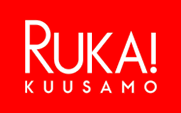Tanja Pohjola works as a sales manager and partner at Pohjolan Pirtti and Kievari, which provides food, program, and event services. Tanja knows that cultural responsibility also interests their international customers.
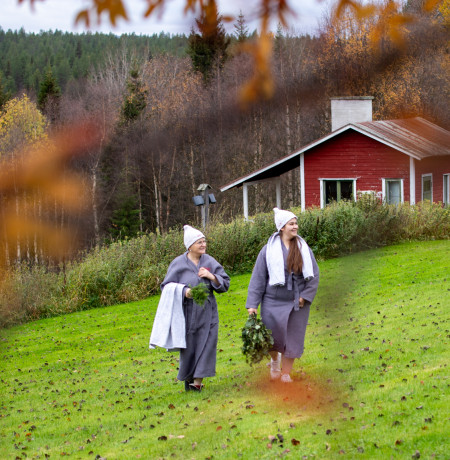
Pohjolan Pirtti and Kievari take care of centuries-old buildings and cultural landscapes
Cultural heritage preservation is part of sustainability – including sauna traditions
Tourism in Ruka-Kuusamo is founded upon the region’s magnificent natural attractions. Hence, the promotion of responsible tourism is especially important for local tourism businesses. Through the Sustainable Travel Finland program (STF) by Visit Finland, companies can incorporate sustainable practices and responsible choices into their daily operations.
Tanja Pohjola's appreciation for Finnish folk traditions became clear during her childhood when she lived abroad due to her father's work. From a distance, she saw the unique value and significance of her homeland's traditions.
Today, Pohjola is the sales manager and partner of Pohjolan Pirtti and Kievari, which offers food, program, and event services. Additionally, she teaches tourists how to bake Kuusamo's traditional barley flatbread. Pohjola is also a traditional sauna therapist, offering treatments and ancient sauna rituals.
– In the sauna, I use different types of wood for whisking, depending on the ailment – juniper, birch, rowan, and willow. I'm hoping my husband will build a treatment sauna here so I can expand my repertoire of sauna treatments, dreams the traditional sauna therapist.
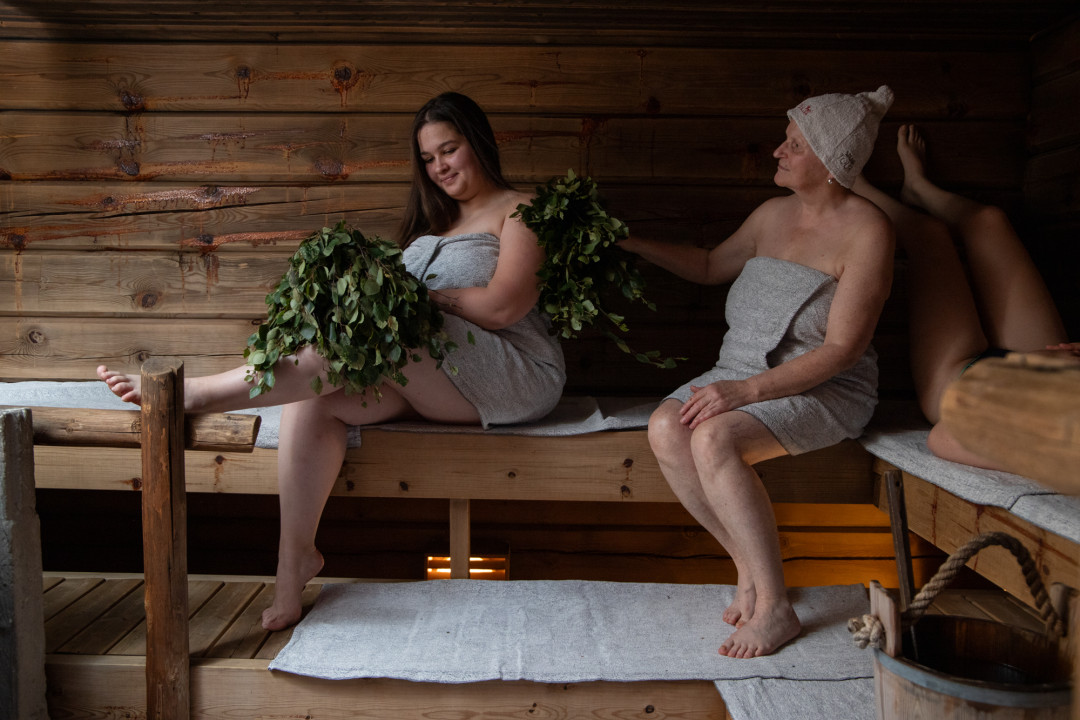
Log walls whisper history
Vuotunki is an ideal place for practicing folk traditions, as it is one of the oldest Finnish settler villages in Kuusamo. The first settlers arrived in the 1680s from the Sotkamo area.
The current main building of Pohjolan Pirtti was completed in 1891, under the matriarchy of the current host Matti Pohjola's grandmother, Riita-Mari. The Pirtti has been inhabited ever since, except for two wartime evacuations. The logs have never been whitewashed or covered with wallpaper, and the Pirtti has never been divided into multiple rooms.
Though each generation has left its mark on the Pirtti, the log walls still echo the ambiance of the old days.
– The logs were saplings in the late 1500s and grew for 300 years in the forests of Kuusamo. Although the windows have been replaced with tighter ones, we've primarily aimed to restore the old rather than build something new, says Pohjola.
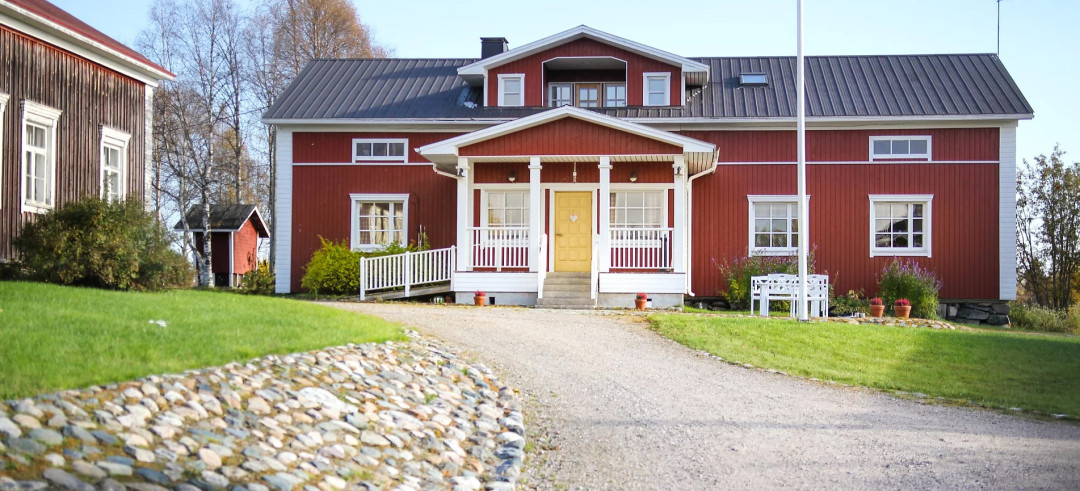
Taking care of traditional landscapes is part of responsibility
Pohjolan Kievari was built next to the Pirtti over a century ago. In 1912, one of the five Pohjola brothers built a house on the inherited plot, which his sons began to expand. However, the expansion became so expensive that the house and plot were sold to the municipality of Kuusamo.
In the 1930s, the Kievari building operated as an elementary school, and during World War II, it served as an air surveillance post. Unlike many northern Finnish villages, Vuotunki and its buildings were spared from wartime destruction, and the elementary school reopened for children returning from evacuation.
In spring 2018, the old elementary school, which had been vacant for years, returned to the Pohjola family's ownership. After extensive renovations, the log-walled halls can accommodate 80-100 people, hosting various events from rustic weddings to winter garden parties.
– Kievari is furnished with only old, recycled items from antique shops and online flea markets. The textiles, dishes, and decorative items are also from the old days, Pohjola explains.
The company is committed to maintaining not only the culturally significant buildings but also the surrounding cultural landscape and its biodiversity.
– This is cultural responsibility. We want to share the history of our area with our customers and preserve these treasures for future generations. The history also includes the forest Sami who inhabited the area before the Finnish settlers, Pohjola points out.
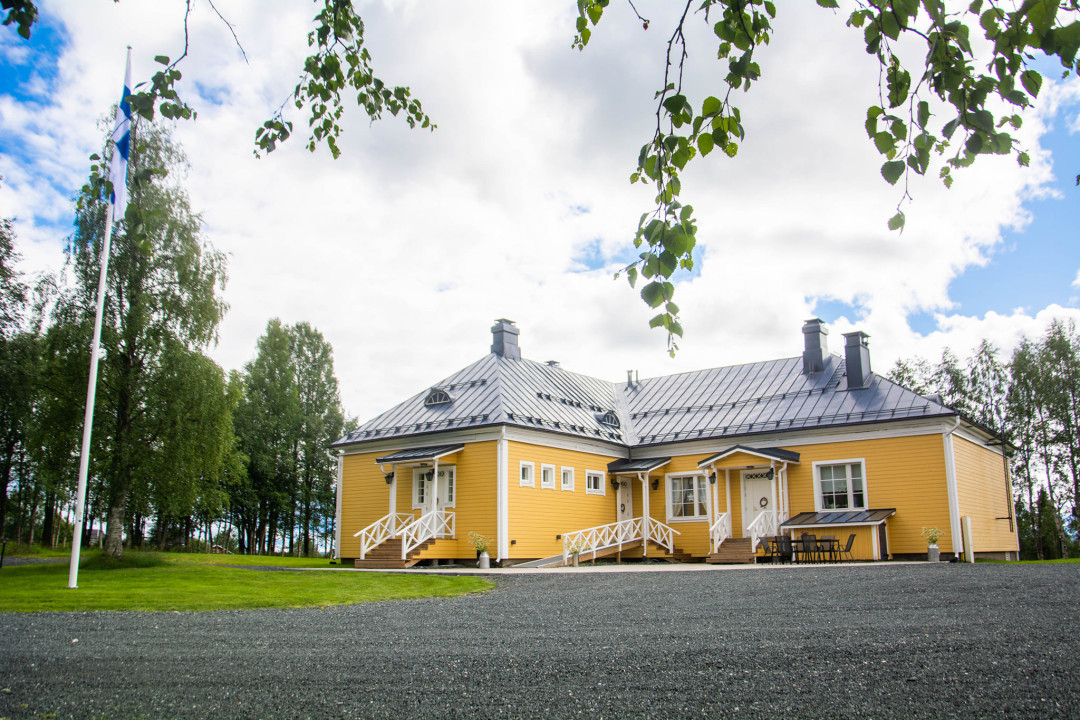
Responsibility extends to remote villages
Vuotunki is located 30 kilometers from the town of Kuusamo and the village of Ruka. While the remote location creates its own ambiance and peace, it is not ideal from a responsibility perspective.
Most of the company's customers fly to Kuusamo, from where it's a half-hour drive to Vuotunki. Since aviation emissions are still not under control, Pohjolan Pirtti and Kievari aim to ensure that customers' visits have as little environmental impact as possible.
– Climate change particularly affects the well-being of nature here in the north. Moving in clean nature and waters is important for both ourselves and our customers, Pohjola emphasizes.
Pohjolan Pirtti and Kievari had been cooperating with Visit Finland for over a decade before joining the STF responsibility program. The Pohjolas found Visit Finland's support particularly useful for reaching international markets.
– When the STF program was launched and the entire Ruka-Kuusamo area joined, we definitely wanted to be part of it.
To Pohjola's surprise, the company already had many responsible aspects in place. In addition to the environmentally friendly renovation of old buildings, the food philosophy naturally included using local and as locally produced ingredients as possible. One of the main buildings is almost entirely heated by lake heat.
– Customers are increasingly interested in where the food comes from. If you can name the local fisherman as well as the lake, even better, she says.
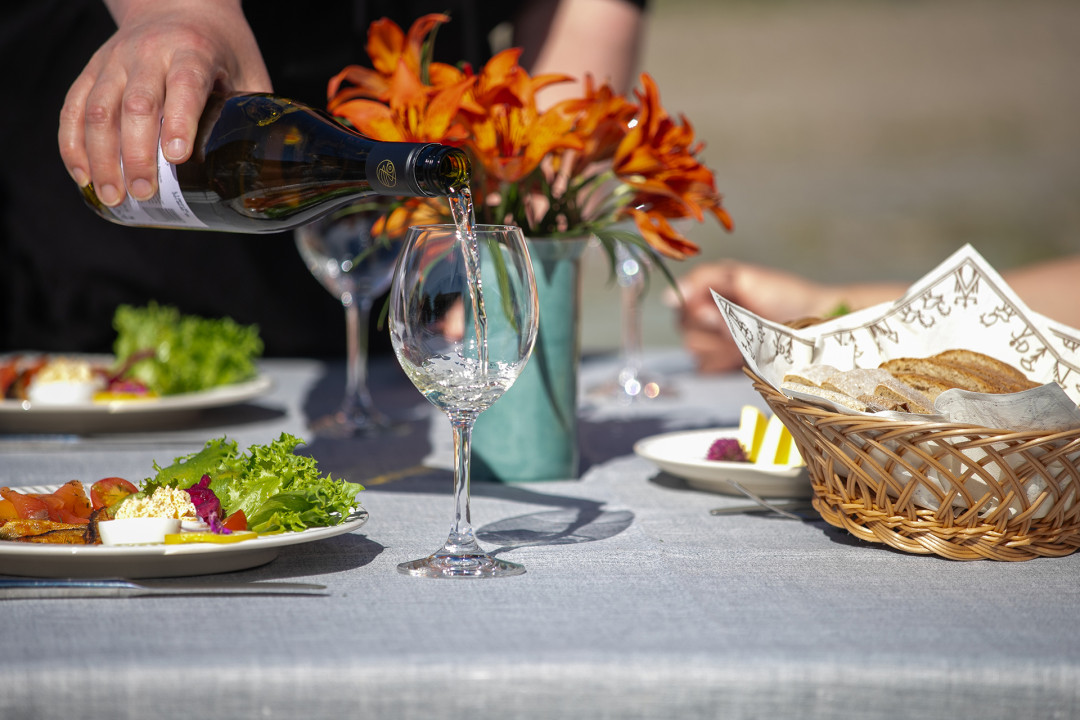
Developing responsibility piece by piece
The most effort has been required to organize recycling in the rural village. Cardboard, paper, metal, plastic, and glass still have to be taken to Kuusamo for recycling when running errands in town.
Kuusamo does not have a separate collection for biowaste, so it used to go into mixed waste. Nowadays, a garbage truck collects both mixed and biowaste from Pohjolan Pirtti and Kievari once a month and slightly more frequently during the season.
Due to the infrequent collection, biowaste must be carefully stored to avoid attracting rodents. In summer, Pirtti and Kievari have compost bins, and last winter, biowaste bins were also installed in the waste shelter.
– Additionally, the taps in the sauna and toilets were replaced with water-saving ones, and the lamps with energy-efficient LEDs. Next, we will focus on calculating our carbon footprint.
Pohjola believes the STF program is a good tool for evaluating one's operations. It helps determine whether they are genuinely sustainable. She reminds that many local businesses likely already have the basics well in hand. Not everything needs to be perfect immediately, as development happens piece by piece.
– For our customers, it's increasingly important how responsibly we manage things. Everyone can do something in their own way. The more companies knowledgeable about responsibility there are, the more meaningful our work on responsibility becomes, concludes Tanja Pohjola.
Read more:
Sustainable Tourism in Ruka-Kuusamo
Pohjolan Pirtti and Kievari
Published: 8.7.2024
Text: Pauliina Toivanen
Photos: Ruka-Kuusamo Tourist Association/Salla Karhumaa
